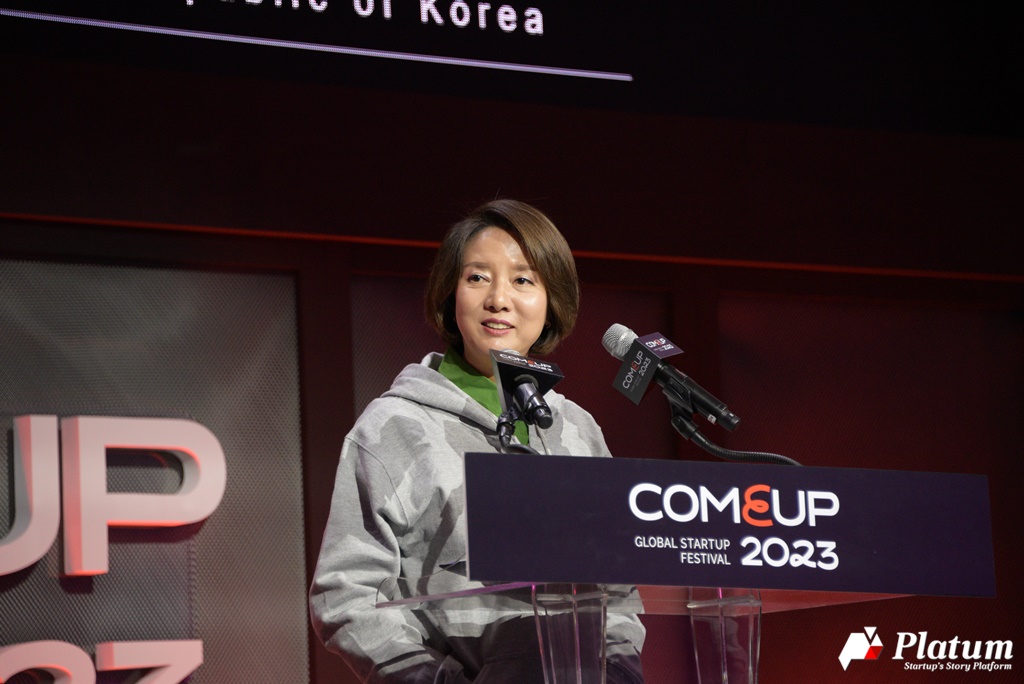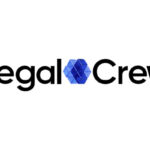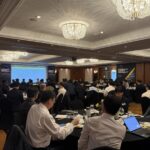
On November 9, the Ministry of SMEs and Startups (Minister LEE Young, hereinafter referred to as MSS) released a report on the third-quarter trends in venture capital investment and fund formation in Korea. The report covers the performance of investment companies for the establishment of small and medium enterprises and new technology venture capital companies. The release of this report is in line with the “Plan for financial support to innovative startups and enhancing their competitiveness,” which was jointly prepared by the concerned ministries in April 2023.
The prevailing trends and implications of the current state of the Korean venture capital investment market are as follows.
First, investment performance has been analyzed for the first three quarters of 2023 and compared to previous years. The results show that the cumulative investment performance of KRW 7.7 trillion in 2023 is less than that achieved in 2021 and 2022, when the liquidity expansion resulted in higher investment, with KRW 10.9 trillion and KRW 10.2 trillion, respectively. However, this amount is higher than the annual performance achieved in 2018 and 2019, which were KRW 5.9 trillion and KRW 7.5 trillion, respectively. It is getting closer to the annual performance achieved in 2020, which was KRW 8.1 trillion. Therefore, it can be concluded that 2023’s annualized results are likely to be one of the highest on record, with the exception of 2021 and 2022, which recorded the highest investment performance.
Venture capital investment is showing signs of recovery as we head into the second half of 2023. Q3 results indicate a 24% increase in investment volume (KRW 3.2 trillion) compared to the same period last year (KRW 2.6 trillion). Investment has been on the rise for three consecutive quarters, with Q1 at KRW 1.8 trillion, Q2 at KRW 2.7 trillion, and Q3 at KRW 3.2 trillion. Furthermore, the monthly investment performance of investment companies for the establishment of small and medium enterprises (excluding new technology venture capital companies) has been steadily improving since January.
The investment bias concentrated in COVID-related sectors such as non-face-to-face sectors and biotech is now easing. As of the third quarter of 2023, there is now a growing interest in deep-tech and national high-tech strategic industries such as secondary batteries, displays, and semiconductors. This shift in focus is reflected in the proportion of investments made in the industries relating to “electricity, machinery, and equipment” and “ICT manufacturing,” which has increased significantly. Table 4 provides a detailed overview of this trend.
In the third quarter of 2023, the Korean venture capital investment has declined compared to the same period last year. However, it is recovering at a significantly faster pace compared to the US, Europe1, and Israel. In cumulative terms, Korea has invested KRW 7.7 trillion. In dollar terms, Korea showed a 27% decline compared to the same period last year, which was relatively better than the US (△39%), Europe (△47%), and Israel (△62%). In fact, Korea has the highest rate of improvement.
According to Table 5, the cumulative venture capital fund closings are estimated to reach KRW 8.4 trillion by the end of the third quarter of 2023. This amount is already higher than the total annual funding for the year 2019, which was KRW 7.9 trillion. It is important to note that venture capital funds are usually formed most actively in the fourth quarter2. Additionally, the formation of the selected funds from the first round of the Regular Fund of Funds Investment Program is expected to be completed in the fourth quarter as well. Therefore, the total venture capital funding by the end of the year will likely surpass the annual performance of 2020, which was KRW 10.0 trillion.
The government is taking active measures across ministries to boost investment sentiment. In line with the plan for financial support to innovative startups and enhancing their competitiveness signed jointly by relevant ministries in April 2023, the investment limit for banks to invest in venture capital funds has been increased by the Financial Services Commission in July 2023. Additionally, a corporate tax credit was newly established by the Ministry of Economy and Finance in July 2023 for investments in private VC master funds.
MSS is taking steps to secure available resources for venture capital investment through various means. These steps include the establishment of the Startup Korea Fund (which aims to reach KRW 2 trillion by 2027), support for the formation of private venture capital master funds, and a 50% increase in the number of fund of funds compared to the previous year. On October 5, MSS announced its “Plan to Boost Venture Capital Investment,” which actively considered feedback from the venture capital industry. As a result, it plans to continue improving the system related to the management and supervision of fund of funds and venture capital.
Minister LEE Young said, “The third quarter venture capital investment performance suggests that the market is open to a stable and soft landing.” She added, “In order to boost investor confidence, we plan to enhance collaboration with international CVCs to assist Korean startups in attracting foreign investment. We will also make use of all relevant policy tools, including the Startup Korea Fund and the private venture capital master fund.”







Leave a Comment